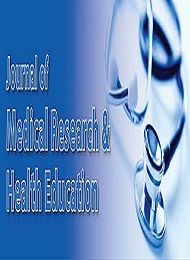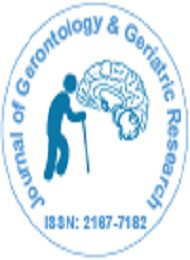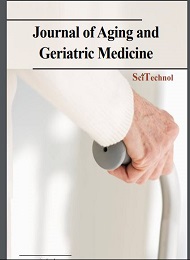Theme:
Geriatric Health 2020
We are glad to announce “7th Asia Pacific Geriatrics and Gerontology Congress” which has been slated on October 19-20, 2020 Tokyo, Japan. Covering the theme “Translating Research Evidence into Geriatrics and Aging”. It is a great pleasure to invite all geriatricians, gerontologists, scientists, public health experts, policy-makers and researchers to share their knowledge and new ideas through a series of Key Notes, Plenary Talks, Workshops, Symposiums, Young Research Forum and Exhibitions.
We are sure Asian Geriatrics 2020 will be a marvelous open door for the global group to express their thoughts and add a typical vision for future research and prompts collaboration among researchers taking an interest.
Tokyo is a gorgeous city with many hidden secrets poses one of the world’s most promising destinations to visit and experience the special tourist attractions. Tokyo is known for the charm of its unique traditions, the beauty of its panoramic views, and the majesty of its magnificent "villas" (parks). Among the most significant resources are the many museums and others dedicated to modern and contemporary art – aqueducts, fountains, churches, palaces, historical buildings, the monuments and ruins of the Roman Forum, and the Catacombs.
Why to Attend?
With members from around the world focused on learning about Geriatrics Gerontology and Palliative Care and its advances; Asian Geriatrics 2020 is a fantastic opportunity to reach the largest assemblage of participants from the Geriatrics and Elderly Care community. Conduct presentations, distribute information, meet with current and potential scientists, make a splash with new developments in Geriatrics and Gerontology, and receive name recognition at this 2-day event. World-renowned speakers, the most recent techniques, developments, and the newest updates in Geriatrics and Gerontology are hallmarks of this conference.
AIMS of the Conference:
- Sharing of scientific knowledge and experience in all areas applied to geriatrics, gerontology and related scientific fields;
- Strengthening and expanding the human network of all involved in this field in Europe and globally;
- Providing opportunities for Early Career geriatricians for their professional development
- Providing a forum for scientific exchanges on recent gerontological concepts
- Identify knowledge gaps that need to be filled;
- Promote the role of health promotion and prevention in improving quality of life of Elderly
Benefits of Attending:
- Exchange ideas and network with leading geriatricians, gerontologists, healthcare providers, geriatric nurses and researchers from different parts of the globe.
- Discuss quality initiatives that can be applied in the practice
- Discuss ways to collaborate in putting quality initiatives in place throughout the geriatrics and gerontology research
- Participants can gain direct access to a core audience of professionals and decision makers and can increase visibility through branding and networking at the conference
- Learn and discuss key news and challenges with senior level speakers.
- With presentations, panel discussions, and workshops, we cover every topic on Elderly Care from top to bottom, from global macro issues to strategies to tactical issues.
Intended Audience:
Physicians
Medical directors
Dental professionals
Internal Medicine specialists
Ophthalmologists
Rheumatologists
Clinical geriatrics
Nurses
Pulmonologists
Pharmacists
Occupational therapists
Social workers
Ageing service providers
Caregiver specialists
Policy makers
Students and others interested in the field of Geriatrics and Elderly Care.
Geriatrics and Gerontology
Growing oldest old number of people who are susceptible to several medical complications such as neurological, respiratory, orthopedic and cardiovascular diseases coupled with increase in the advancement of technology such as the development of specialty robots skilled for assisting old people in carrying out day to day operations is anticipated to drive the geriatric care services market share. The global geriatric research market was valued at US$ 599.6 billion in 2015 and is expected to expand at a CAGR of 4.2% during the period 2016 – 2024.
Geriatric Nutrition
Changes associated with normal aging increase nutritional risk for older adults. Nutrition has a major role in protecting health and slowing disease progression. Paradigms that promote the nutritional components of healthy aging are needed to increase the age of chronic degenerative disease onset and to maintain healthy, functional lives for as long as possible. At this time, there is a tremendous disconnecting between nutrition and how it is implemented into healthcare.
Genetics of Ageing
Genetics of aging is generally concerned with life extension associated with genetic alterations, rather than with accelerated aging diseases leading to reduction in lifespan. The first mutation found to increase longevity in an animal was the age-1 gene in Caenorhabditis elegance.
Aging and Clinical Trials
Clinical trials are one of the most advanced sciences in the domain of aging research. A clinical trial is a specific kind of research study performed in individuals which undergoes for assessing a restorative, surgical, or behavioral mediation. Most clinical trials test some other treatment, similar to another medication or eating routine or therapeutic gadget (for instance, a pacemaker) as a technique for treating a wellbeing issue. Other clinical trials test approaches to discover an ailment before there are even manifestations physically. A clinical trial may likewise take a gander at how to improve life for individuals living with an existence which involves undermining illness or a ceaseless wellbeing issue. Clinical trials sometimes concentrate on the part of parental figures or care groups.
Geriatrics and Elderly Care
The global population of elderly of 65 years is growing at an exponential way, driven by better healthcare, nutrition and an abrupt decrease in infectious diseases exposure. From few years it got witnessed in many cases that changing demographics and an increasing life-expectancy of the global population, resulting in the rapid growth of a geriatric population requiring medical support. Likewise, a changing pattern in the absence of family based providing care and in addition changing consumer preferences relating to the kind of medical is also emerging in many countries.
Aging Care Management
Aging care services are holistic, client-centered approach to caring for older adults or others facing on-going health challenges. Working with families, the expertise of Palliative Care provides the answers at a time of uncertainty. Their guidance leads families to the actions and decisions that ensure quality care and an optimal life for those they love, thus reducing worry, stress and time of work for family caregiver through individual health professionals.
Geriatric and Gerontology Of Palliative Care
Gerontologist is the study of the problems that elderly individuals might encounter and the aging process. Gerontology nursing is multidisciplinary and is concerned with physical, mental, and social aspects and implications of aging. Geriatrics is a medical specialty focused on treatment and care of older persons. These specialists give hospice care and palliative nursing to them.
Geriatric Rehabilitation
With increased age, patients regularly confront numerous physical and emotional changes that can influence level of function and well-being. Rehabilitation keeps up functional independence in the elderly. Rehabilitation of geriatric patients is basic for the patients' wellbeing and for society. Geriatric rehabilitation additionally have a role in transitional care, where patients are alluded by a hospital or family doctor, when there is a prerequisite to give hospital based short term intensive physical therapy went for the recuperation of musculoskeletal function, especially recovery from joint, ligament, or tendon repair.
Geriatric Endocrinology and Diabetes
Significant advances in wellbeing and social prosperity have prompted linear gains in life expectancy and a going with increment in the burden imposed by age-related morbidities. Complex adjustments in hormonal networks which control homeostasis and survival may underlie this poor adjustment to later life. Both the menopause and subclinical thyroid disease show the trouble in turning around endocrine changes in later life. In old age (≥60– 65 years of age), Diabetes mellitus is becoming an alarming public health issue. Among the elderly population, type 2 diabetes is a growing issue, and a bigger extent of recently analyzed diabetics is older.
Geriatric Services
Geriatric care services enable families to make and implement long term care plans for their loved ones. Geriatric Services are hospital and community-based health care services that analyze, treat and restore fragile older adults with complex medical, functional and psychosocial issues. Elderly patients frequently require an assortment of services to help with medicinal services and different issues. Sometimes, geriatric patients require home care, which may be given by organizations that utilize nurses and other.
Management of Cancer in Older People
Population aged more than 65 years are more inclined to chronic diseases because of their weak immune system. With a rapidly ageing population moving the spotlight to geriatric oncology, research in this field is also rapidly changing and progressing. Older adults are heterogeneous and regularly barred from clinical trials. New models of care would be invaluable for older adults with cancer, encouraging joint effort, correspondence, and patient-centeredness and limiting the fracture that debilitates the current provision of cancer care. The more regrettable result for elderly patients is just halfway disclosed by decreased tolerance to treatment regimens related with the expanding number and seriousness of comorbidities.
Palliative and Community Nursing
Palliative care is a methodology that enhances the quality of life of patients and their families confronting the issue related with life-threatening illness, through the counteractive action and help of suffering by methods for early identification and flawless evaluation and treatment of pain and different issues, physical, psychosocial and spiritual. Community nursing incorporates Public Health Nursing and Community Health care.
Palliative and Community Nursing
Palliative care is a methodology that enhances the quality of life of patients and their families confronting the issue related with life-threatening illness, through the counteractive action and help of suffering by methods for early identification and flawless evaluation and treatment of pain and different issues, physical, psychosocial and spiritual. Community nursing incorporates Public Health Nursing and Community Health care.
Health for Ageing
The Health technology can help change and develop health behaviors like increased consumption of fruits and vegetables, stress management, reduced consumption of salt and improved quality of diet and sleep; and improve self-efficacy in elderly individuals with chronic disease such as cognitive disorders & Alzheimer’s, heart disease and susceptibility to metabolic risk & diabetes through text messages, voice messages, voice calls and game-based mobile applications.
Mental Health Palliative Care
Palliative Care within Mental Health is driven, not only by knowledge, skills, and attitudes, but by compassion. To give the extent palliative nursing and nature of palliative care for people with pre-existing mental health problems. The hospice palliative care approach an explicitly within psychiatry has the potential to improve quality of care, person- centeredness, and autonomy for the severe persistent mental illness of patients. Palliative care among those with mental state problems and also the difficulties associated with treating physical malady throughout this population.
Market Study of Geriatrics in USA | Europe | Middle East | Asia Pacific:
USA: By 2030, it is estimated that the US population of people age 65 and over will double, making up over 20% or about 70 million of the country’s population. As the baby boomers enter the geriatric population, this has the potential to enormously escalate the nation’s already high health care costs. The U.S. population is “graying” at a rapid rate. According to data published by the United Nations in 2014, it has been estimated that by the year 2022, approximately 35% of the population would be above 60 years of age.
Europe: The European population of over 18 million (3.6%) in the next 35 years, with the population peaking in 2050 at 525.5 million. The median age in Europe has risen by 8.3 years in the last half a century, from 31.5 in 1960 to 39.8 in 2010. It is projected to rise by another 7.4 years, to 47.2, by 2050. The percentage of Europeans aged over 65 is projected to rise from 16.0% in 2017 to 29.3% in 2050. The European population aged over 80 is set to rise significantly. In 1960 just 1.4% of Europeans were over 80. This figure reached 4.1% in 2010 and is projected to increase to 11.5% by 2050.
Middle East: The Middle East will develop rapidly aging populations within the next few decades. Many factors has resulted in increase in the elderly including improvement in living standards, the curbing of communicable disease, and the latest breakthroughs in medical science. The World Health Organization, estimates that from 2000 to 2050, the rate of growth of the population above age 65 is projected to be 4%–5%, and the average annual growth rate of the oldest old (85 years and older) will exceed 5% in eleven Arab countries.
Asia Pacific: All countries in Asia and the Pacific are in the process of ageing at an unprecedented pace, although the timing and pace of this transition varies across the region. In 2016, approximately 12.4 per cent of the population in the region was 60 years or older, but this is projected to increase to more than a quarter or 1.3 billion people by 2050. By 2050, nearly 8 in 10 of the world’s older population will live in the less developed regions. This is especially pertinent for a region such as Asia and the Pacific.
Importance and Scope:
The world’s older population continues to grow at an unprecedented rate. Today, 8.5 percent of people worldwide (617 million) are aged 65 and over. According to a new report this percentage is projected to jump to nearly 17 percent of the world’s population by 2050 (1.6 billion). Population ageing is poised to become one of the most significant social transformations of the twenty-first century, with implications for nearly all sectors of society, including labour and financial markets, the demand for goods and services, such as housing, transportation and social protection, as well as family structures and intergenerational ties. the number of older persons — those aged 60 years or over — is expected to more than double by 2050 and to more than triple by 2100, rising from 962 million globally in 2017 to 2.1 billion in 2050 and 3.1 billion in 2100. Globally, population aged 60 or over is growing faster than all younger age groups. In 2017, there are an estimated 962 million people aged 60 or over in the world, comprising 13 per cent of the global population. The population aged 60 or above is growing at a rate of about 3 per cent per year. Currently, Europe has the greatest percentage of population aged 60 or over (25 per cent). Rapid ageing will occur in other parts of the world as well, so that by 2050 all regions of the world except Africa will have nearly a quarter or more of their populations at ages 60 and above. The number of older persons in the world is projected to be 1.4 billion in 2030 and 2.1 billion in 2050, and could rise to 3.1 billion in 2100.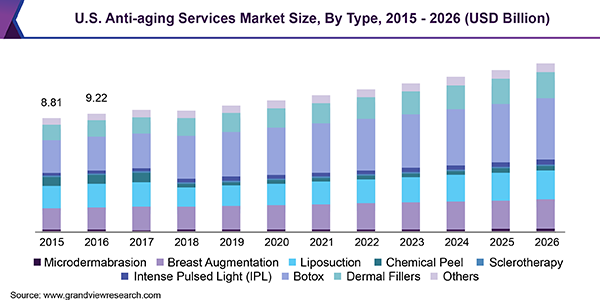
Target Audience:
Major Geriatrics Societies/ Associations around the Globe:
British Geriatrics Society
American Geriatrics Society
European Union Geriatric Medicine Society
International Association of Gerontology & Geriatrics
Geriatrics Society of India
Japan Gerontological Society
Canadian Association on Gerontology
Center to Advanced Palliative Care
Southern Gerontological Society
Major Geriatrics Societies/ Associations in Europe:
Sociedad Española de Geriatría y Gerontología
Sociedad Española de Medicina Geriátrica
Andalusian society of Geriatrics and Gerontology
Valencian society of Geriatrics and Gerontology
Madrid society of Geriatrics and Gerontology
Czech Society of Gerontology and Geriatrics
Danish Society of Geriatrics
Hungarian Association of Gerontology and Geriatrics
Swedish Geriatric Medicine Society
Portuguese Society of Geriatrics and Gerontology
French Society of Geriatrics and Gerontology
Irish Gerontological Society
Italian Society of Gerontology and Geriatrics
Turkish Geriatric Society
Universities Associated with Geriatrics around the Globe:
San Diego State University
Ithaca College
University of Nebraska
Miami University
University of South Florida
University of Northern Iowa
Missouri State University
Winston-Salem State University
Weber State University
Lindenwood University
California University of Pennsylvania
University of Michigan
University College Cork
Central South University
The University of Edinburgh
Osaka University
University of Hong Kong
University of North Dakota
La Trobe University
University of Sheffield
Cardiff University
Swansea University
University of Melbourne
Charles Strut University
Lund University
The Chinese University of Hong Kong
Örebro University
Key players operating Geriatric Research around the Globe:
Growing geriatric population intending to live independently is one of the major drivers of the geriatric care services market. The global geriatric care services market is expected to reach to 1,012.02 billion Pounds by 2022, growing at a CAGR of 6.1% over the forecast period. According to data published in 2017, it has been estimated that by the year 2022, approximately 35% of the population would be above 60 years of age. Presence of various long term care services providers coupled with favourable reimbursement policies are few factors expected to boost the growth of the geriatric care services market. Furthermore, increasing oldest old population who are prone to various medical conditions such as Neurological, Orthopaedic, Cardiovascular & Respiratory disorders coupled with increasing technological advancement such as the development of specialty robots capable of assisting elderly in carrying out day to day operations are expected to drive the geriatric care services market growth.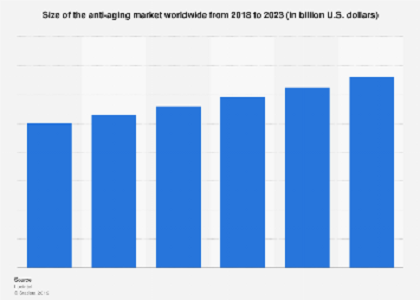
The proportion of older people in the population continues to grow, Rome is one of the most strongly affected by demographic change with the proportion of people aged ≥ 65 years expected to rise by about 50% until 2030. Due to the progressive increase in the proportion of elderly people, health care systems are faced with serious organizational and financial challenges. At the end of 2018, proportion of the population aged over 65 was 21.1 percent. 30.9 percent are estimated for the year 2060. An increasing proportion of older people are accompanied by a decrease in the proportion of the younger generation. Currently 18.3 percent of the population is aged less than 20 years, for 2060 17.3 percent is expected. The proportion of the population aged over 80 (the very old) is estimated to rise from today's 5.8 percent to 11.8 percent in 2060. In Rome the number of dementia patients is estimated to rise to between 2.1 and 3.5 million by 2050.
Conference Highlights
- Geriatrics and Gerontology
- Geriatric Nutrition
- Genetics of Ageing
- Aging and Clinical Trials
- Geriatrics and Elderly Care
- Aging Care Management
- Geriatric and Gerontology of Palliative Care
- Geriatric Rehabilitation
- Geriatric Endocrinology and Diabetes
- Geriatric Services
- Management of Cancer in Older People
- Palliative and Community Nursing
- Alzheimer’s disease and Dementia
- Health for Ageing
- Mental Health Palliative Care
To share your views and research, please click here to register for the Conference.
To Collaborate Scientific Professionals around the World
| Conference Date | October 19-20, 2020 | ||
| Sponsors & Exhibitors |
|
||
| Speaker Opportunity Closed | |||
| Poster Opportunity Closed | Click Here to View | ||
Useful Links
Special Issues
All accepted abstracts will be published in respective Our International Journals.
- Journal of Medical Research & Health Education
- Journal of Gerontology & Geriatric Research
- Journal of Aging and Geriatric Medicine
Abstracts will be provided with Digital Object Identifier by





